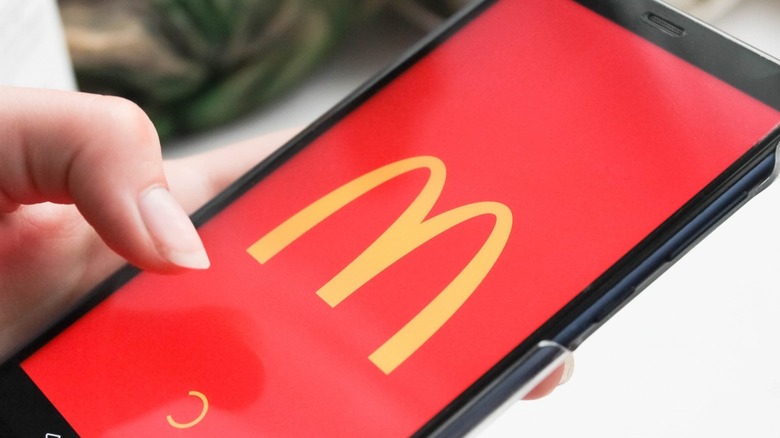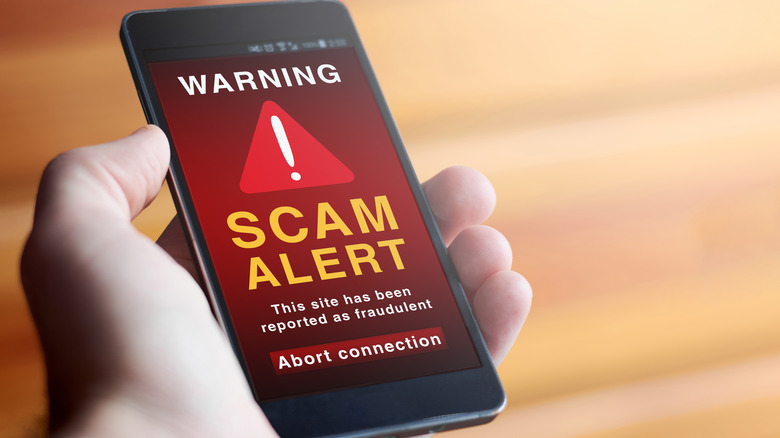Don't Fall For This McDonald's Email Scam
It's the middle of the workday, and you're browsing through e-mails. You sift past junk, advertisements, and chain messages, and just as you're about to hit delete, you notice a pretty peculiar e-mail, one sent directly from... Well, you're not exactly sure who sent it since most of it is a jumble of random letters and numbers, but you can make out the word "McDonald's" in the mess. The rest of the message, which drifts between being written by a rudimentary bot and someone with an incredibly basic grasp of English, promises you a "free gift" or an "exclusive reward" if you simply fill out a survey. According to Snopes' research into this "McDonald's" e-mail, you'll actually be redirected to a Russian survey website, where you'll be promised a $100 gift card to McDonalds if you follow their instructions.
Anyone who has a lot of experience with the internet can tell you these are nothing more than scams, the online equivalent of a shady character on the street offering you "discount" goods that are in reality total junk. The first "spam e-mail" actually dates back to 1978, before reappearing again in 1988 and flooding our inboxes with scams and junk ever since. But in a time of increasingly advancing technology, spammers, scammers, and other online data-stealers are doing their best to try and weasel their way into your private information any way they can.
How to spot spam emails
While you may think you know all the obvious tricks and schemes that online grifters can pull, there are other people, such as elderly internet users, who may not. In fact, the American Journal of Public Health concluded that "1 of every 18 cognitively intact, community-dwelling older adults" are affected by scams each year. As phishing messages and survey scams become more realistic and harder to identify, how can you help others keep away from these unsavory sites?
The Federal Trade Commission has several ways to identify a scam e-mail, even if it looks like a realistic message from an actual company. If the e-mail begins with a generic greeting (i.e. Hi Dear, Hello Customer, etc.) instead of the name you have on your account, it may be suspicious. If the e-mail claims that there is a "problem" with billing and needs your information to rectify it, it's best to check with the company first — or verify if you even have an account with them to begin with — before you go clicking anything. Finally, the e-mail may try to entice you with discounts or free trials, much like the "McDonald's special gift" e-mail (or another scam email claiming to be from "Costco") promises. Remember: sometimes the best things in life aren't free, so in case they need something in return from you, you're better off tossing the e-mail into the (virtual) trash.

